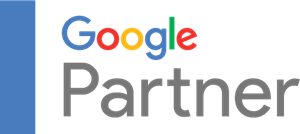CPC (Cost Per Click), or cost per click, is a term often used in online advertising. It represents the amount an advertiser pays for each time a user clicks on an ad. CPC is one of the key factors that affect the effectiveness of online advertising campaigns. In this article, I take a closer look at this concept and discuss its meaning and benefits for advertisers.
What is CPC?
Is a billing model in online advertising, in which the advertiser pays only for clicks on the ad. This means that regardless of the number of times an ad is displayed, you only incur costs if the user actually clicks on the ad and is redirected to the landing page. The price per click can vary depending on a number of factors, such as competition in a particular industry, the quality of the ad or the specifics of the advertising platform.

Source: http://www.senuto.com
Advantages for advertisers
Learn why CPC is an advantageous billing system:
Precise monitoring and cost control
CPC makes it possible to accurately monitor the cost of a campaign, since the advertiser pays only for actual clicks. You can set a budget for the campaign and track what costs are incurred depending on the number of clicks. This allows you to effectively control spending and optimize your campaign.
Directing traffic to the landing page
CPC allows to attract users who are interested in the advertiser’s offer. A user who decides to click on an ad is already interested in a particular product or service. Therefore, a click generates high-quality traffic to the landing page, which increases the chances of conversion, i.e. the user performing the desired action, such as making a purchase or signing up for a newsletter.
Stay up to date with changes in Google Ads!
Sign up for the newsletter
Precise targeting and personalization
Google Ads allow precise targeting of ads, allowing the advertiser to reach specific audiences. Factors such as location, age, interests or preferences can be taken into account, greatly increasing the effectiveness of the campaign. By personalizing ads, the advertiser can tailor the message to the specific needs and expectations of the audience, resulting in better results
Measuring campaign effectiveness
CPC enables accurate measurement of the effectiveness of an advertising campaign. Thanks to analytical tools and reports available in advertising platforms, an advertiser can track key metrics such as click-through rate (CTR), cost per click (CPC), cost per conversion (CPA) or return on investment (ROI). This information allows you to continuously monitor and optimize your campaigns to achieve the best possible results.
Scalability and flexibility
CPC provides the opportunity to scale the campaign according to the advertiser’s needs. You can adjust budgets and track results to optimize spending and maximize profits. In addition, the advertiser can adjust campaign parameters such as click-through rates and audience groups at any time to better adapt to changing needs and market conditions.
Summary
CPC (Cost Per Click) is one of the most popular billing models in online advertising. It gives advertisers many advantages, such as precise monitoring and cost control, targeting quality traffic to the landing page, precise targeting and personalization, campaign performance measurement, and scalability and flexibility. This gives you more control over your campaigns and allows you to achieve better advertising results. This is a valuable model to consider when planning an online advertising strategy.
Google Ads really works! See for yourself – I run campaigns that increase my clients’ profits. I invite you to cooperate with us.

















